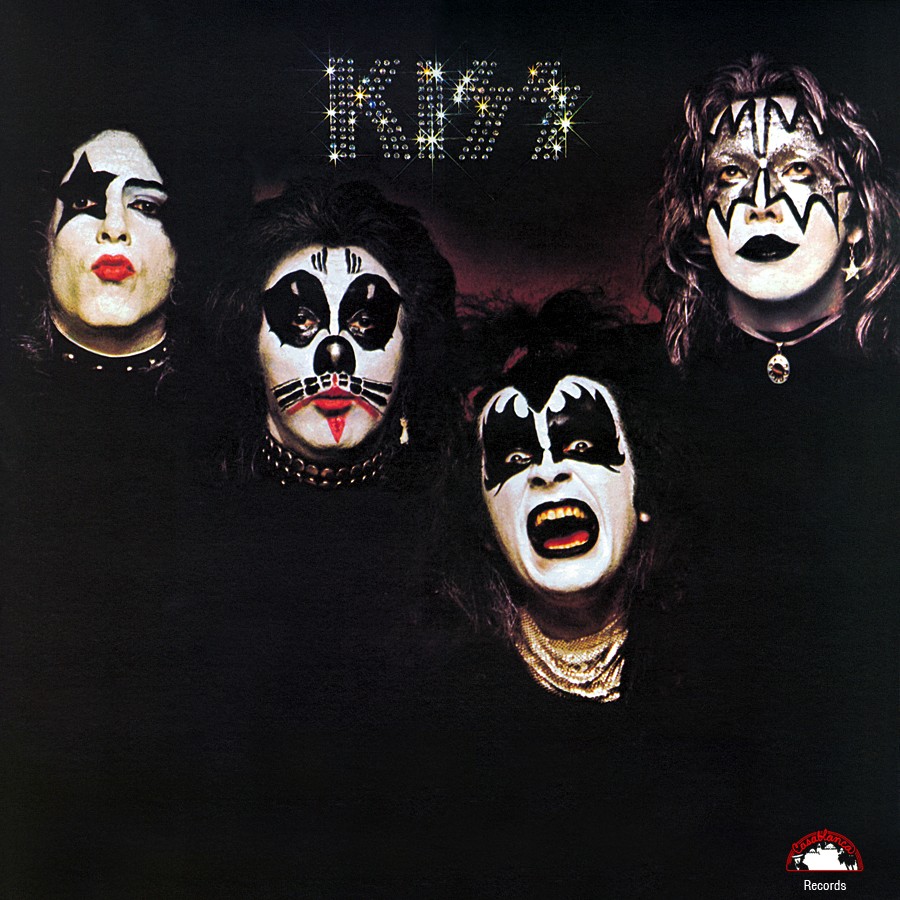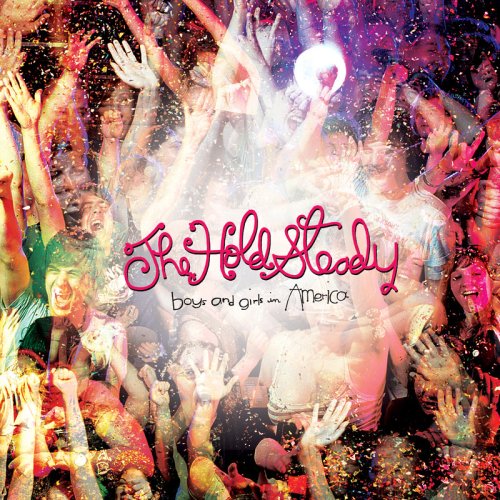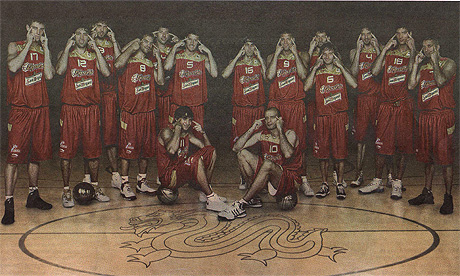Congratulations, faithful readers. You have reached the halfway mark with this post. To quote someone who will not be appearing on this list: “Oh, we’re halfway there / Woa! livin’ on a prayer.” I got universal praise for last week’s batch of selections. Somehow I don’t think I will get the same approval this week…
55. John Mellencamp – The Lonesome Jubilee, 1987You can say what you want about the influence and greatness of The Buffalo Springfield, Gram Parsons, The Byrds, The Band and all who created Americana/roots rock (which, loosely defined, combines country/folk/roots influences and rock and paved the way for Ryan Adams, Wilco, Uncle Tupelo and their ilk)…but for my money, the best hybrid of these styles before the arrival of Uncle Tupelo was #55. Mellencamp doesn’t get the credit he deserves, still weighed down by his underwhelming early days as Johnny Cougar and then being unfairly tagged as a Springsteen-Lite. His innovative blending of fiddles, acoustics, mandolins and accordions in a traditional rock setting is wedded to a batch of songs with devastating lyrics about the trials and travails of the common man. Hits “Paper In Fire,” “Cherry Bomb” and “Check It Out” are all top-notch, but I love the deep album cuts just as much. “Hotdogs and Hamburgers” has long been a favorite of mine. It is a tale of a brash young man driving along the highway who picks up a young attractive Indian hitchhiker because he thinks he can get a little action…
“’I’ll give you beads and wampum, whatever it takes to make you trade’
She jumped into the backseat and she kinda flipped her lid
She said ‘you’re tryin’ to get somethin’ for nothin’, like the pilgrims in the old days…’”
They have an interesting conversation about the history of the Indian nations and the treatment of the Indian peoples, and Mellencamp admits at the end of the ride…
“I realized it was sort of an honor being around this girl
I felt embarrassed about what I tried to do earlier that day
She was the saddest girl I ever knew…”
I firmly stand by #55; it is the best that this genre has to offer (its only fault is that it is a little too earnest at times), and it is often overlooked in part because it was so popular when it came out, which goes against the necessary underground credentials of the alt-country No Depression aesthetic. But give credit where credit is due, Mellencamp got it all right on this one.

ABOVE: John Mellencamp rudely ignores the old man sitting at the counter at the local diner. Fuckin' rock stars. Old man thinking: "he looks like a damn girl with all that long hair. I bet I could kick his ass."
54. The Pretenders – Learning to Crawl, 1984Chrissie Hynde is one of the coolest women in rock, in that she perfectly balances a vulnerability with tough chick bluster. Plus she surrounded herself with a killer band. I love their third release, as it is full of both catchy rockers and beautiful moments. “Middle of the Road” is one of the great rockers of the 80’s, while “Back on the Chain Gang” features a memorable guitar hook (the song was later famously covered by tejano martyr Selena). Hynde captures the life of the common man (or woman) with the witty workingwoman anthem “Watching the Clothes,” and then addresses an abusive relationship head-on in their devastating cover of “Thin Line Between Love and Hate.” It is also interesting that as liberal and politically outspoken as Hynde is, none other than Rush Limbaugh uses the groovy opening of “My City Was Gone” as the intro music to his radio show.
53. Madness – Madness, 1983Technically, this violates my rule of no compilations. But to be fair, #53 was not released as such. Madness were massive hitmakers in the UK, but still unheard of in the States. Most of their records were not even released stateside, so Geffen Records quickly put this odd hodgepodge together to capitalize on the surprise popularity of “Our House,” assembling it haphazardly with many tracks from their excellent
The Madness Presents the Rise and Fall, and then adding several other random album cuts from previous albums (but not hits). #53 was released as their “debut” in America. Anyway, it was one of my first rock records as a kid, and I fell in love with this quirky ska band. 80’s hit “Our House” leads things off, of course, but then it moves into more obscure (but just as good) territory. The second half is especially strong, featuring some of the best deep cuts from
The Madness Presents the Rise and Fall, which is considered a landmark of the genre in Britain. It is a funny circumstance of timing. I know that I should dislike this Geffen mercenary cheapie release and appreciate the original
The Madness Presents the Rise and Fall much more, but since I became familiar with #53 over twenty years before I finally bought the proper
The Madness Presents the Rise and Fall, it is #53 that sounds like the original to me.
52. Kiss – Kiss, 1974I am an unapologetic Kiss fan, a proud ranking officer of the Kiss Army. Any Kiss fan will tell you that the definitive Kiss album is
Alive!, one of the most exciting and juvenile live albums ever recorded, but since live albums are forbidden on this list, I have to settle on their best studio effort. For me, that would be their debut. My allegiance to Kiss is perhaps a tad unreasonable, but they were my first favorite band. As with many kids growing up in the 70’s, I was first pulled in by the make-up and spectacle (and brilliant marketing machine) that was Kiss, Inc. But due to my permissive parents, I was also able to get many of their albums as well. The first rock songs I committed to memory were the unsubtle bombast of Ace, Gene, Paul and Peter…the Fab Four for the 70’s generation. (There is one year where many Christmas family photos feature a little Ace Frehley running around the otherwise normal family gathering, thanks to the Kiss Make-Up Kit that I got that year and my sister’s subsequent quick work on my face.) The tunes on their debut are big, dumb teenage hard rock. “Strutter,” “Deuce,” “Cold Gin,” “Firehouse,” “100,000 Years,” “Black Diamond”…all Kiss standards to this day. Sometimes rock fans and critics take music way too seriously. Perhaps an album like this; obvious, loud, juvenile, testosterone-filled, hooks galore...perhaps this is the true essence of what rock and roll should be.

ABOVE: The boys in all their early glory
51. Pete Townshend – All the Best Cowboys Have Chinese Eyes, 1982Townshend once said of this album that he was so strung out on drugs at the time that he does not recall even recording it. That is fascinating, because it is one of the most literate and intelligent records I’ve ever come across. Townshend thoughtfully addresses aging in a business that celebrates youth throughout the record. “Exquisitely Bored” would have made a killer Who track, but most of these tunes are so personal that they belong on a solo record vs. a record for his band. The best songs are at the end, “Somebody Saved Me” and “Slit Skirts.” In “Slit Skirts,” Pete addresses his inevitable march into middle age and his relevance as a rock idol, as well as the insecurities about keeping the flame alive in his personal relationships:
“Slit skirts, Jeannie never wears those slit skirts
And I don’t ever wear no ripped shirts
Can’t pretend that growing older never hurts…
Recriminations fester and the past can never change
A woman’s expectations run from both ends of the range
Once she woke with untamed lovers’ face between her legs
Now he’s cooled and stifled and it’s she who has to beg”











.jpg)








FullAlbumCover.jpg)

